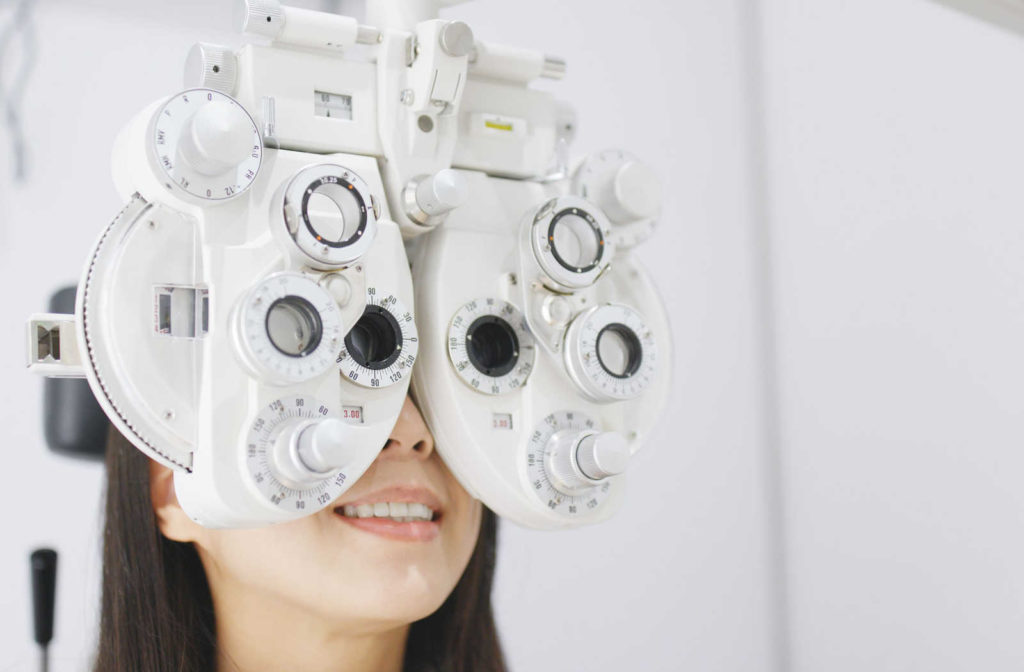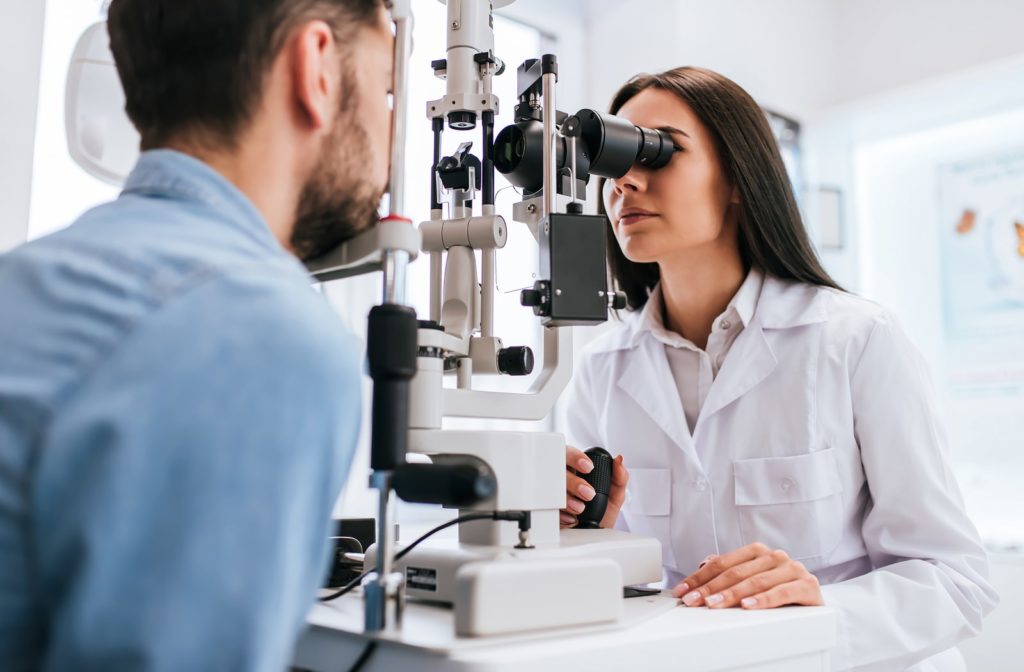We can all agree that taking care of our eyes is essential. There are many facets to good eye care, though. It’s not as simple as eating carrots and staying a certain distance from the TV.
Getting comprehensive eye exams play a critical role in your ongoing eye care. Not only do they allow you to stay on top of your vision with an up-to-date prescription if you wear glasses or contacts, but an eye exam offers early detection of diseases like diabetes.
Eye exams aren’t just for when we grow up. Children should receive their first eye exam by the time they are 1 or 2. Many eye problems—if caught early enough—can be either reversed or treated to cause fewer quality of life problems down the road.
What is a Comprehensive Eye Exam?
What exactly a comprehensive eye exam includes may vary slightly depending on the optometrist you visit. But several things are fairly standard.
- Medical and Personal Background: Your optometrist will ask you a lot of questions. On the one hand, they are looking for anything about your background that indicates an eye condition they need to monitor. On the other, they are seeing if they should recommend anything preventative based on your family’s health history.
- Visual Acuity: The optometrist will run tests to tell them how well you can see close-up and far away.
- Eye Health: Your optometrist will perform several other tests during the eye exam that will tell them about your overall eye health.
After all this testing, your optometrist puts all the pieces together. Once they have the complete picture of your eye health, they can recommend treatment or preventative care.
Things to Bring to Your Eye Exam
If you currently wear glasses or contacts, bring them with you to your exam—even if you don’t wear them all the time. Your optometrist will check the prescription to ensure that it’s the best one for your eyes.
Another thing that you should bring is a pair of sunglasses. The optometrist will often put special drops in your eyes to dilate them during the exam. This dilation can make your eyes sensitive to sunlight.

Why is a Comprehensive Eye Exam Important for Adults?
Many eye conditions that endanger our eyesight have little to no symptoms early on. Early diagnosis is essential to successful treatment.
Quite often, if things like glaucoma or macular degeneration are caught soon enough, the diseases can be halted or slowed. A comprehensive eye exam can also detect age-related eye problems like cataracts or presbyopia. In addition, these exams can be instrumental in the early detection of diabetes.
The medical benefits of regular eye exams aren’t the only reason to get them. Having an up-to-date prescription is great because the wrong prescription lenses in our glasses can cause eye strain and headaches.
Why is a Comprehensive Eye Exam Important for Children?
Everything about children is constantly in a state of change, and their eyes are part of this. Healthy eyes that work together and good eyesight are essential to children’s reading or motor skills development.
If a child has something going on with their eyes from birth or a very young age, they may not even know to express that there is something wrong with their vision. Early detection is so important because there is often a good chance of successful treatment as the child’s eyes develop.
Comprehensive Eye Exam Schedule
| Age | Low Risk | High Risk |
| 3–5 | Once | As recommended |
| 6–17 | Prior to first grade, then annually | As recommended |
| 18–64 | Every two years | Annually or as recommended |
| 65+ | Annually | As recommended |
The above chart is the recommended schedule according to the American Optometric Association. If you or your child is at a higher risk for eye problems, your optometrist may recommend a different plan.
Vision Screening vs. Comprehensive Eye Exam
Unlike a comprehensive eye exam, an optometrist or ophthalmologist doesn’t need to perform a vision screening. As a result, it’s a lot less in-depth and won’t necessarily tell you anything about your eye health.
A primary care provider often performs vision screenings at children’s regular checkups. But they should not take the place of a comprehensive eye exam because vision screenings can’t diagnose eye problems.
However, it can help detect potential problems if the child hasn’t been to the optometrist yet. Your child will be referred to an eye care professional if anything is detected.
Closing Thoughts
If you haven’t ever had a comprehensive eye exam before, there’s no time like the present. Contact our team today and let the caring and professional staff at Seal Beach Eyes care for your eyes.



